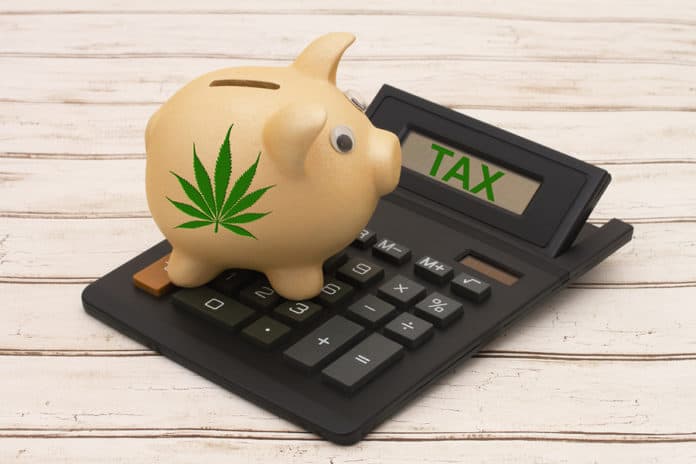Cannabis has officially had legal status in Canada for more than a year now and provincial governments have released their cannabis tax figures for the first five and a half months of legal sales.
Data published on Wednesday revealed that the provincial and federal governments in Canada raked in C$186 million ($140 million) in revenue collected as taxes from the legal cannabis industry. The data which was provided by Statistics Canada excludes the revenue forecasts of two major Canadian provinces
Statistics Canada revealed that Ottawa’s tax collected through the goods and services taxes, as well as federal excise taxes, amounted to C$55 million. Although the reported revenues from the cannabis taxes were quite substantial, they were short of the estimated revenues. Economist Robyn Gibbard who represents a think tank of the Conference Board of Canada believes that the cannabis taxes failed to reach the expected levels due to a bumpy legalization rollout.
“However, we think that as the kinks are worked out, governments can expect strong growth in revenues from cannabis sales going forward,” Gibbard pointed out in his statement.
Understanding the reason behind the less than projected tax revenue
Gibbard’s statement aligns with the decisions by numerous provinces including British Columbia and Ontario to slash estimates because they were off to a slow start. The delays that the provinces experienced were due to prices higher than those of the black market and also supply shortages. Retail cannabis stores in Ontario which is the province with the highest population in Canada opened in April.
The cannabis industry in Canada is expected to generate more profits in the second half of 2019 because the industry has already gone through the rough start. Things should therefore improve over the next few months and so should profits if it maintains its current pace. This translates to more tax revenue for the governments courtesy of cannabis sales.
Governments risk missing out on tax revenue if they let the black market win
Michael Armstrong, a business professor at Brock University believes that the federal and provincial governments are currently facing a dilemma with cannabis taxes. They will secure more revenue from the cannabis industry if they increase taxes. However, doing so also means prices will increase and this means that the legal cannabis industry will not offer an incentive for people to stop buying from the cannabis black market.
Armstrong also provided California as an example of the consequences of heavy taxation. The heavy taxation in the cannabis industry in the state makes it hard for legal cannabis businesses from making any progress. Consequently, the state has been generating a low amount of tax from the industry compared to the estimated figures.
Canadian provincial governments and the Federal government must therefore try to strike the right balance that will facilitate a win-win situation for everyone. If such a balance is not achieved, they risk failing to overcome the same problem that they wanted to tackle by legalizing cannabis. The aim is to choke the cannabis black market through legalization that will allow the existence of a regulated market.


